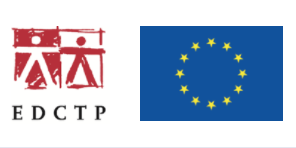With colleagues from the Liverpool School of Tropical Medicine (LSTM), the College of Medicine, the University of Cape Town and the World Wide Antimalarial Resistance Network (WWARN), the IMPACT study team will strengthen the evidence base around cardiac safety and drug-drug interactions with antiretroviral drugs through pooling of individual patient safety data.
Rationale
Policy makers and control programmes are exploring options to use antimalarial drugs as part to reduce malaria transmission through mass drug administration. Widespread use of an antimalarial among unselected populations that include asymptomatic and uninfected individuals requires drugs with a wide therapeutic dose range and excellent safety profile.
Challenge
One of the drugs currently considered for being explored as intermittent preventive treatment and mass drug administration is dihydroartemisinin-piperaquine (DHA-PPQ). DHA-PPQ is one of the World Health Organization (WHO) recommended drugs to treat uncomplicated malaria. The key concern with piperaquine is the remaining uncertainty around the cardiac safety in different subgroups, as piperaquine is known to prolong the QT interval in a concentration-dependent manner. While the European Medicines Agency has approved the drug, it has called for more data to substantiate the cardiac safety of DHA-PPQ and its effect on QTc intervals, particularly in children. Although other widely used quinolines have also been shown to prolong the QT interval, the concentration-dependent association, and its relationship to dose and other determinants (including malaria disease severity and electrolyte disturbances) have not been defined sufficiently to inform the upper mg/kg dose threshold.
In addition, whilst dosing guidelines are usually set at the same level for all patients, this does not take into account specific subgroups of patients, such HIV positive patients, who may be at higher risk of harms related to antimalarials, due to having different pharmacokinetics, potential drug interactions, and other HIV-related risk factors. Data on piperaquine-antiretroviral interactions is scarce, and whilst DHA-PPQ has been used safely in HIV positive children [2, 3], a lack of systematically collected, standardised safety data in this population limits the ability to use this data to inform optimal dosing in this group of vulnerable patients.
The IMPACT Project
The IMPACT grant is part of an expanding collaboration between LSTM and WWARN to compile and conduct pooled safety analyses on antimalarial adverse event data and specific safety signals. More information on the Piperaquine Safety Study Group can be found on the WWARN website.
This project will help identify remaining knowledge gaps in antimalarial drug safety and ultimately lead the way towards a more standardised process for antimalarial dose optimisation through linking of efficacy and safety data. This process will be applicable across a range of drugs. Furthermore, the work will contribute towards the development of a WWARN toolkit to optimise collection, capture and reporting on ECG and other cardiac safety data in antimalarial clinical studies.
The LSTM team members
Anja Terlouw
Eva Maria Hodel
David Lalloo
Helen Wong
Project Outputs
Based on an initial consultation of the Malaria Policy Advisory Committee in 2016 WHO decided to review the evidence on the cardiac safety of antimalarials, with a particular interest in piperaquine, resulting in a WHO Evidence Review Group meeting in October 2016 to review the evidence. As part of this both the EDCTP1 studies (ADAPT and ADJusT) and The IMPACT Project contributed to this process and output provided opportunities for more in-depth pooled individual level analyses. IMPACT project partners contributed to the ERG process, meeting and final ERG report, which was reviewed by the MPAC in March 2017.
Funding

This project is part of the European and Developing Countries Clinical Trials Partnership 2 (EDCTP2) programme supported by the European Union through a “Coordination & Support Actions” grant (EDCTP-CSA-2014-282) to support the translation of findings from the previously EDCTP-funded ADAPT 1 & 2 and ADJusT trials towards treatment policy and health impact.
For further information please contact the team at IMPACT@lstmed.ac.uk
References
1. Eurartesim: European public assessment reports - Product Information
2. Kamya MR, Yeka A, Bukirwa H, Lugemwa M, Rwakimari JB, Staedke SG, Talisuna AO, Greenhouse B, Nosten F, Rosenthal PJ, et al: Artemether-Lumefantrine versus Dihydroartemisinin-Piperaquine for Treatment of Malaria: A Randomized Trial.PLOS Clin Trial 2007, 2:e20.
3. Katrak S, Gasasira A, Arinaitwe E, Kakuru A, Wanzira H, Bigira V, Sandison TG, Homsy J, Tappero JW, Kamya MR, Dorsey G: Safety and tolerability of artemether-lumefantrine versus dihydroartemisinin-piperaquine for malaria in young HIV-infected and uninfected children.Malar J 2009, 8:272



